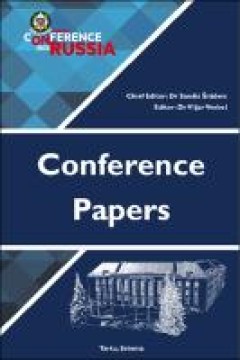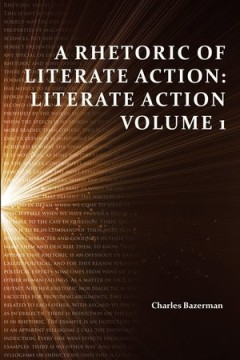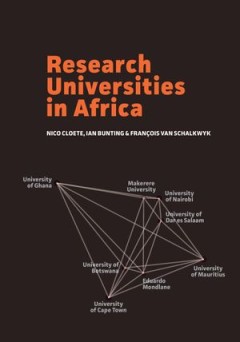Filter by

The Russia Conference Papers 2021
This publication discusses Russia’s foreign, security, defence, and military policies from both Euro-Atlantic and Russian perspectives. More importantly – this work acts as an essential platform for analysing the security challenges linked with Russia and the required responses of the Euro-Atlantic community to the complex challenges posed by Russia’s actions in the region and on a global…
- Edition
- Ed. 1
- ISBN/ISSN
- 9789949035687, 9789949035694
- Collation
- 188
- Series Title
- -
- Call Number
- 327 RUS r

The Social Effects of Native Title: Recognition, Translation, Coexistence
The papers in this collection reflect on the various social effects of native title. In particular, the authors consider the ways in which the implementation of the Native Title Act 1993 (Cwlth), and the native title process for which this Act legislates, allow for the recognition and translation of Aboriginal law and custom, and facilitate particular kinds of coexistence between Aboriginal tit…
- Edition
- Ed. 1
- ISBN/ISSN
- -
- Collation
- 223
- Series Title
- Research Monograph, 27
- Call Number
- 305.8 SMI s

A Rhetoric of Literate Action : Literate Action Volume 1
The first in a two-volume set, A Rhetoric of Literate Action is written for "the experienced writer with a substantial repertoire of skills, [who] now would find it useful to think in more fundamental strategic terms about what they want their texts to accomplish, what form the texts might take, how to develop specific contents, and how to arrange the work of writing." The reader is offered a f…
- Edition
- -
- ISBN/ISSN
- -
- Collation
- -
- Series Title
- -
- Call Number
- 370 BAZ r

Financial Report 2022
In 2022, the Bank’s lending signatures amounted to €65.1 billion. This report includes the 2022 financial statements and audit reports both for the EIB and the EIB Group.
- Edition
- -
- ISBN/ISSN
- 9789286155079
- Collation
- -
- Series Title
- -
- Call Number
- 354

Research Universities in Africa
"From the early 2000s, a new discourse emerged, in Africa and the international donor community, that higher education was important for development in Africa. Within this ‘zeitgeist’ of converging interests, a range of agencies agreed that a different, collaborative approach to linking higher education to development was necessary. This led to the establishment of the Higher Education Rese…
- Edition
- -
- ISBN/ISSN
- 9781928331889
- Collation
- -
- Series Title
- -
- Call Number
- 370 CLO r

Responding to the Educational Needs of Post-School Youth : Determining the Sc…
he research reflected in this volume indicates that in South Africa there are almost three million youth between the ages of 18 and 24 who are not in education, training or employment – a situation which points not only to a grave wastage of talent, but also to the possibility of serious social disruption. The authors in this work paint a picture of the enormous reservoir of human talent whic…
- Edition
- -
- ISBN/ISSN
- 9781920355272
- Collation
- -
- Series Title
- -
- Call Number
- 370 RES

Research and Development in Adult Education : Fields and Trends
The importance of adult education is growing steadily— be it in relation with migration, matters of inclus - ion, the work place etc. Thus, this international perspective on the most important research issues in adult education is a wealth of knowledge for anyone related to this field. The book is composed as a text book and thus, provides didactic material for discussion and further explorat…
- Edition
- -
- ISBN/ISSN
- 9783866497191
- Collation
- -
- Series Title
- -
- Call Number
- 370 OLI r

Fair Rosamond : A Study of the Development of a Literary Theme
In Fair Rosamond, Virgil B. Heltzel traces the character of Rosamond Clifford, known as Fair Rosamond - which has its origins as a theme in medieval literature -through its use in poetry and plays and novels, from the Renaissance through the early twentieth century. Heltzel’s book retains its importance today for scholars tracing certain thematic structures through all periods of literature.
- Edition
- -
- ISBN/ISSN
- 9780810138452
- Collation
- -
- Series Title
- -
- Call Number
- 370 HEL f

Proceedings of 2015 2nd International Conference on Industrial Economics Syst…
* Mengumpulkan makalah berkualitas tinggi tentang keadaan seni dan praktik studi ekonomi industri dan teknik keamanan industri. * Memberikan wawasan yang membahas masalah-masalah yang menyangkut perekonomian nasional, pembangunan sosial dan ketahanan ekonomi. * Para penulis adalah pakar yang dihormati dari Pusat Penelitian Keamanan Industri China dan lembaga penelitian terkemuka lainnya -> Volu…
- Edition
- -
- ISBN/ISSN
- 978-981-287-655-3
- Collation
- -
- Series Title
- -
- Call Number
- 338.5 ZHA i

Proceedings of 2014 1st International Conference on Industrial Economics and …
* Mengumpulkan makalah dari forum internasional terkemuka. * Ditulis oleh para ahli terkemuka di bidangnya. * Menyajikan kemajuan mendasar terbaru dalam keadaan seni dan praktik ekonomi industri dan keamanan industri --> Teks ini memberikan informasi tentang prosiding Konferensi Internasional Ekonomi Industri dan Keamanan Industri 2014 (IEIS'2014). Konferensi tersebut diadakan di Berkeley, Cali…
- Edition
- -
- ISBN/ISSN
- 978-3-662-44085-8
- Collation
- -
- Series Title
- -
- Call Number
- 338.5 SHI i
 Computer Science, Information & General Works
Computer Science, Information & General Works  Philosophy & Psychology
Philosophy & Psychology  Religion
Religion  Social Sciences
Social Sciences  Language
Language  Pure Science
Pure Science  Applied Sciences
Applied Sciences  Art & Recreation
Art & Recreation  Literature
Literature  History & Geography
History & Geography